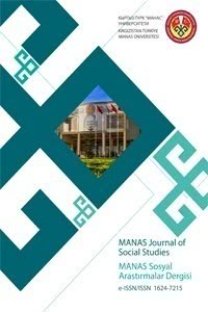WEBER’S PENDULUM: DOES CHANGE PERCEPTION OF AUTHORITY AT WORK?
___
Adorno, T.W. (1950) The Authoritarian Personality. New York: Harper & Brothers.Alvesson, M., & Willmott, H. (2002) Identity regulation as organizational control: Producing the appropriate individual. Journal of Management Studies 39: 619-644.
Alvesson, M. (2004) Knowledge work and knowledge-intensive firms. Oxford: Oxford University Press.
Asch, S. E. (1956) Studies of independence and conformity: A minority of one against a unanimous majority. Psychological Monographs 70(9): 1-70.
Astley, W. G. (1985) Organizational size and bureaucratic structure, Organization Studies 6(3): 201-228.
Barker, J. R. (2005) Tightening the Iron Cage: Concertive Control in Self-Managing Teams. In: C. Grey, & H. Willmott (eds.) Critical Management Studies: A Reader. Oxford: Oxford University Press, pp.209-243.
Barthes, R. (1977) The Death of the Author. In: R. Barthes (eds.) Images, Music, Text. New York: Hill and Wang, pp.1422-148.
Bauman, Z. (1989) Modernity and Holocaust, Cambridge: Polity Press.
Bell, D. (1973) The Coming of Post-Industrial Society. New York: Basic Books.
Bennis, W.G. (1959) Leadership Theory and Administrative Behavior: The Problem of Authority, Administrative Science Quarterly 4(3): 259-301.
Burris, B. H. (1989) Technocratic Organization and Control. Organization Studies 10(1): 1-22.
Casey, C. (2004) Bureaucracy Re-enchanted? Spirit, Experts and Authority in Organizations. Organization 11(1): 59-79.
Daft, R. (2000) Management. Orlando: Dryden Press.
Dahl, R. (1989) Democracy and Its Critics. New Haven: Yale University Press.
Dahrendorf, R. (1959) Class and Class Conflict in Industrial Society. CA: Palo Alto, Stanford University Press.
Drucker, P.F. (1969) The Age of Discontinuity. London: Heinemann.
Drucker, P.F. (1993) Post-capitalist Society. London: Heinemann.
Emery, F.E. (1980) Designing socio-technical systems for ‘greenfield’ sites. Journal of Occupational Behaviour 1: 19-27.
Foss, N. J. (2002) 'Coase vs Hayek': Economic Organization and the Knowledge Economy. International Journal of the Economics of Business 9(1): 9-35.
Foucault, M. (1995) Discipline and Punish: The Birth of the Prison. NY: Vintage Books.
Foucault, M. (2010) The Government of Self and Others. NY: Palgrave.
Fox W., Payne D., Priest T., & Philliber W. (1977) Authority position, legitimacy of authority structure, and acquiescence to authority. Social Forces 55: 966-973.
Fromm, E. (1942) Fear of Freedom. London: Routledge.
Fromm, E. (1973) Anatomy of Human Destructiveness. NY: Holt, Rinehart and Winston.
George, J.M., & Jones, G.R. (2012) Understanding and Managing Organizational Behavior. New Jersey: Printece-Hall.
Gershuny, J.I., & Miles, I.D. (1983) The New Service Economy: The Transformation of Employment in Industrial Societies. London: Frances Pinter.
Harvey, D. (1990) The Condition of Postmodernity. Oxford: Blackwell.
Hegel, G. W. F. (1975) Lectures on the Phıilosophy of World History. Cambridge: Cambridge University Press.
Hegel, G. W. F. (1977) Phenomenology of Spirit. Oxford: Clarendon Press.
Hofstede, G. (2001) Cultural Consequences. London: Sage.
Kahn, W.A.&Kram, K.E. (1994) Authority at Work: Internal Models and Their Organizational Consequences, Academy of Management Review 19 (1): 17-50
Kojeve, A. (2007) Otorite Kavramı. İstanbul: Bağlam Yayınları.
Kumar, K. (1978) Prophecy and Progress: The Sociology of Industrial and Post-industrial Society. NY: Penguin Books.
Lopreato, J. (1967) Authority relations and class conflict. Social Forces 47: 70-79.
Lopreato, J. (1968) Class conflict and images of society. Journal of Conflict Resolution 11: 281-293.
Limerick, D.C. (1976) Authority Relations in Different Organizational Systems. The Academy of Management Review 1(4): 56-68.
Luthans, F. (2011) Organizational Behavior: An evidence-based approach. NY: McGraw-Hill.
Masuda, Y. (1981) The Information Society as Industrial Society. Washington: World Future Society.
McLagan, P., & Nel, C. (1995) The Age of Participation. CA: Berret-Koehler.
McMahon, C. (1989) Managerial Authority. Ethics 100(1): 33-53.
Mendel, G. (2005) Sosyo-Psikanaliz Açıdan Otorite. İstanbul: Cem Yayınları.
Milgram, S. (1974) Obedience to authority: An experimental view. NY: Harpercollins.
Naisbitt, J. (1984) Megatrends: Ten New Directions Transforming Our Lives. NY: Warner Books.
Peabody, R.L. (1962) Perceptions of Organizational Authority: A Comparative Analysis. Administrative Sciences Querterly 6(4): 463-482.
Pfeffer, J. (1977) Ambiguity of Leadership. Academy of Managemnet Review 2(1): 104-112.
Piore, M.J., & Sabel, C.F. (1984) The Second Industrial Divide: Possibilities for Prosperity. NY: Basic Books.
Presthus, R.V. (1960) Authority in Organizations. Public Administration Review 20(2): 86-91
Reed, M. I. (1992) The Sociology of Organizations. London: Harvester.
Robbins, S. P., & Judge, T.A. (2013) Organizational Behavior. New Jersey: Prentice Hall.
Robertson, M., & Swan, J. (2003) ‘Control—what control?’ Culture and ambiguity within a knowledge intensive firm. Journal of Management Studies 40: 831-858.
Robertson, P. L. (2003) Authority and Control in Modern Industry. NY: Routledge.
Romme, A.G.L. (1997) Work, authority and participation: the scenario of circular organizing. Journal of Organizational Change Management 10(2): 156-166.
Rosenau, P.M. (1992) Post-modernism and Social Sciences: Insights, Inroads and Intrusions. New Jersey: Princeton University Press.
Sennett, R. (1993) Authority. NY: W.W. Norton.
Stehr, N. (1994) Knowledge Societies. London: Sage Publications.
Stewart, G.L., & Manz, C.C. (1995) Leadership for self-managing work teams: a typology and integrative model. Human Relations 48: 747-70.
Sthyre, A. (2008) Management Control in Bureaucratic and Post-bureaucratic Organizations: A Lacanian Perspective. Group and Organization Management, 33, 635-656.
Stoner, J.A.S., & Freeman, E. (1989) Management, New Jersey: Printice-Hall.
Wall, T.D. (1982) Perspectives on job redesign. In: J.E. Kelly, & C.W. Clegg (eds.) Autonomy and Control at the Workplace. London: Croom Helm, pp.1-20.
Weber, M. (1946) Essays in Sociology. NY: Oxford University Press.
Weber, M. (1947) The Theory of Social and Economic Organization. NY: Oxford University Press.
Weber, M. (1978) Economy and Society. CA: University of California Press, Berkeley.
- ISSN: 1694-7215
- Yayın Aralığı: 4
- Başlangıç: 2001
- Yayıncı: KIRGIZİSTAN-TÜRKİYE MANAS ÜNİVERSİTESİ
MUTFAK ŞEFLERİNİN TEKNOLOJİYE HAZIR BULUNUŞLUK (TRI) DURUMLARININ DEĞERLENDİRİLMESİ
İNTERNET KAFE, GENÇLİK VE OYUN ETKİLEŞİMİ: ALT KÜLTÜR BAĞLAMINDA BİR İNCELEME
ULUSLARARASI ÖĞRENCİLER, ULUS MARKALAMA VE İYİ ÜLKE İNDEKSİ: TÜRKİYE ÖRNEĞİ
WEBER’S PENDULUM: DOES CHANGE PERCEPTION OF AUTHORITY AT WORK?
REDEFINING DIPLOMACY IN THE 21ST CENTURY & EXAMINING THE CHARACTERISTICS OF AN IDEAL DIPLOMAT
Metin AKSOY, Ahmet Servet ÇİÇEK
OKUL MÜDÜRLERİ VE İŞVEREN GÖZÜYLE MESLEKİ EĞİTİMİN SORUNLARI
TÜRK ASILLI YABANCI UYRUKLU BİREYLERİN TÜRKİYE’DEKİ EĞİTİM SÜREÇLERİNDE YAŞADIKLARI PROBLEMLER
VASFİYE ÇELİK, ŞERİFE PEKKÜÇÜKŞEN
ÜNLÜ KIRGIZ ELEŞTİRMEN SALİCAN CİGİTOV'UN İLMÎ KİŞİLİĞİ VE MAKALELERİNE BİR BAKIŞ
